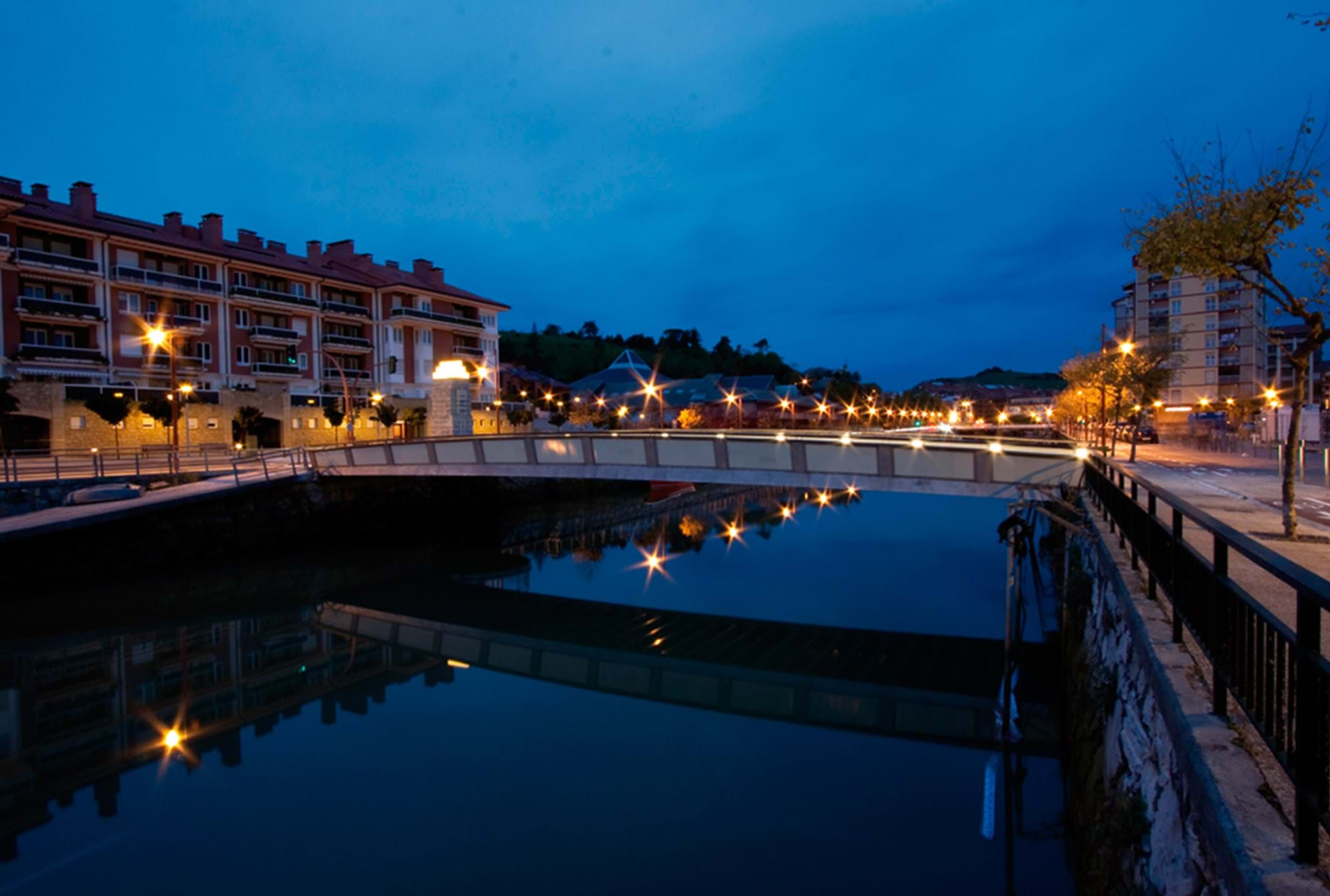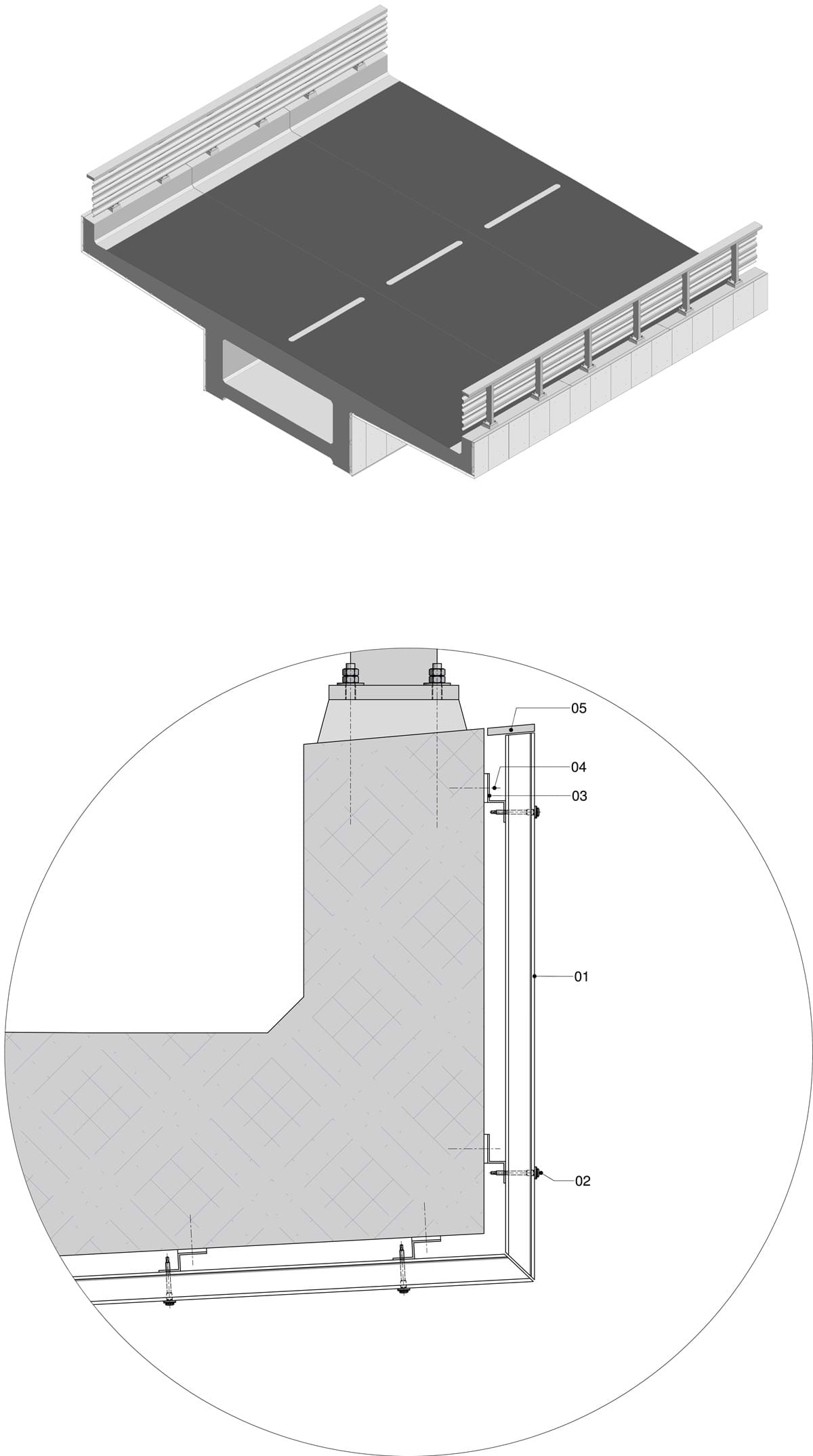

Fiberline profiles and planks can be used for cladding existing or newly built bridges. Claddings with composite materials ensure a weather-resistant shield that protects the underlying structure from wind and weather influences. Primarily we recommend using the MD and HD plank as bridge cladding. The fibreglass planks can be cut to length but also be adjusted in width if required by the project. Besides, all planks are provided with a varnish which enables them to withstand high levels of UV radiation.
Illustration
Our fibreglass planks have been used for cladding steel and concrete bridges. The FRP cladding is there to protect the bridge structure from weather influences but also for architectural reasons. The planks can be painted in any RAL colure.
1. MD Plank, item no 122090
2. SFS or EJOT screw
3. Z-bracket for attaching to existing bridge
4. Anchor bolt
5. Cover profile

Data sheet for decking

Fiberline Medium Duty Plank
Fiberline Medium Duty Plank is designed with an excellent price-performance ratio. The plank weighs only 6.58 kg/m, making it easy to handle on-site. Like other products from Fiberline, plank MD is made of GFRP. This material has noteworthy properties such as a long, proven service life as well as high corrosion resistance and strength. Fiberline plank MD is also available with anti-skid surface
Fiberline Heavy Duty Plank
The strong Fiberline Heavy Duty Plank is suitable for applications were load requirements are 5 kN/m2 and point loads are 10 kN, e.g. decks for bike paths and pedestrian bridges. Plank HD is corrosion-free and has a long service life, even under demanding and corrosive conditions, e.g. swimming pools, industry and cooling towers settings as well as offshore. Other advantages include great strength, low weight and electrical insulation. Plank HD is also available with anti-skid surface.
Fiberline Ultra Duty Plank
The Ultra Duty Plank is our strongest bridge decking, designed to meet the most stringent load requirements for pedestrian and cycle bridges. The UD plank reduces the weight of the structure and is easy to work with at the installation site. It is also corrosion-resistant against a range of chemicals and salt water. Asphalt or PPMA/Epoxy strewn with sand or gravel can be used as a wearing surface.
Our products are CE certified according to the EN13706 1-3 standard. This certification is your guarantee of consistently high quality every time you buy from us and use our products. Read more
Fiberglass enables lightweight and robust constructions, making installation faster. Although the material is comparable to steel, the specific weight of Fiberglass is only a quarter of steel. Read more
Fiberglass is an exceptionally strong material, rivaling steel, aluminum, and wood. Composite profiles offer similar weight to aluminum, while being just 20% the weight of concrete and 40% of steel, making them highly efficient. Read more
Composite materials are generally very durable, with only a few exceptions. They resist a variety of aggressive liquids and environments, resulting in long lifespan and minimal need for maintenance. Read more
Fiberglass is UV-resistant and can withstand temperatures between -40 and +80 degrees Celsius without deterioration of its properties. Additionally, it tolerates seawater and other atmospheric influences. Read more
Fiberglass profiles are electrically insulating. They are suitable for use in connection with all electrical constructions, such as along railway tracks, power plant installations, etc., as they are suitable for both low and medium voltage. Read more
The processing of fiberglass profiles is significantly easier than for metals such as steel, and just as efficient as for wood. This makes it easy to handle solutions with our profiles on site. Read more
Fiberline's fiberglass profiles have a significantly higher thermal insulating capacity compared to steel and aluminum. Read more
Fiberline's products are manufactured energy-efficiently through pultrusion. The low weight relative to strength and long lifespan make them a cost- and energy-efficient alternative. Read more